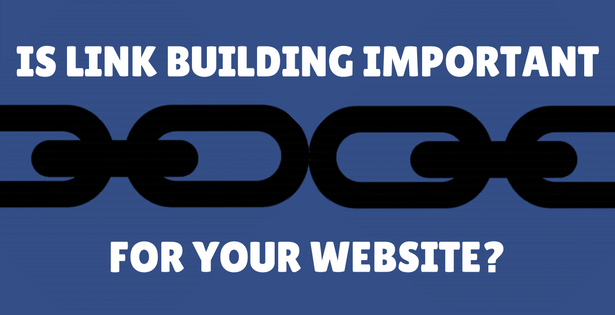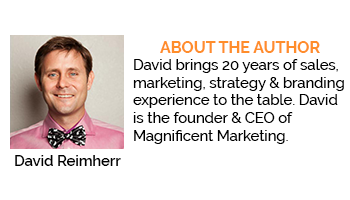The Importance of Link Building in a Website
Stephan Spencer is an internationally recognized SEO expert and best-selling author. He's the co-author of The Art of SEO, author of Google Power Search, and co-author of Social Ecommerce, all published by O'Reilly. The Art of SEO now in its third edition, and weighing in at nearly 1000 pages, is considered the Bible on search engine optimization, and boasts testimonies from industry giants such as Seth Godin and Tony Hsieh, and is even used as a textbook in universities. Stephan has spoken at hundreds of internet marketing events, including all the major e-commerce conferences such as SES, SMX, Pubcon, Internet Retailer, Shop.org, among others. He's been a contributor to the Huffington Post, Multichannel Merchant, Practical Ecommerce, Search Engine Land, DM News, and Marketing Profs among many others as well. I recently talked with Stephan about link building. Here are the highlights from another great conversation with Mr. Spencer!
David Reimherr: Digging into everything, can you give a quick overview of what link building is, and why it's important?
Stephan Spencer: Google has said recently that of the three biggest signals they use in the rankings algorithm,
Relevance
Links
RankBrain
RankBrain being their artificial intelligence, or machine learning algorithm, is now running across 100% of all search queries. When they announced it last year, Google said it was running on 15% of search queries, now they've announced it's running across 100%. So, artificial intelligence is going to be the future as far as SEO, and Google and the organic results are concerned. But in the meantime, until the big AI takes over, and we become slaves to our robot overlords, we're going to have to make relevant content, and get links to that relevant content, in order to be considered important and appropriate for users of Google. So, that's the underlying algorithm, I'm simplifying things because there are lots of signals that Google uses, but links are foundational to your Google rankings. No links, no rankings.
So if you want to rank well on Google - and you should, no matter what your business is, because even if you have a very small clientele, and it's usually referral based, guess where the referred person is going to check to see if you're legit? If that referral was a good one, they're going to type your name into Google and see what comes up. In all cases, you need to be in control of what shows up in those Google search results. So links are the future, and until the AI takes over, we're still going to need to do link building.
Free Tools for Keyword Search Results
DR: You simplified it, but you've basically told everybody 'if you're not paying attention, start paying attention, because it's very important', and you're right. Just because you're not going to be ranking for the highest traffic keywords and phrases in the world, it's still super important for what you mentioned, even if you only have a small client base, because people are going to check you out. They just will. It's almost 100% of the time these days. But before moving on to how we get these links, I'd like for you to provide any insight on keywords or keyword phrases you might want to rank for that you possibly haven't thought of yet. How can one go about finding those?
SS: So there's a great free tool from Google, called the Google AdWords Keyword Planner, that requires you to have an AdWords account. So if you have a Google account, sign up for AdWords, put in your credit card number, you'll be prompted to set up your first campaign, just don't hit 'go' on it, and now you can put in keywords into the keyword planner that you want to check the popularity of, & it will come back with numbers on an average monthly basis. Here's the search volume. There is a little icon next to the number that looks like a chart. Mouse over that chart icon, and you'll see the historical trend over the last twelve months. So if there is a lot of seasonality in the keyword, like something that sells out during the holiday season for example, you'll see a big spike during November/December, and it'll drop off in January, so you can see that historical trend which a lot of people don't even realize they've just moused over that little icon to get that. So that's a great free tool.
There's another free tool from Google which doesn't give you the numbers, it's all kind of relative based, called Google Trends. One great feature of Google Trends, that is little known is, you can switch from web search, you can choose the option 'YouTube Search' and see relatively what keywords are popular with YouTube searchers. By the way, if you're neglecting YouTube, you're really missing out, because it's the number two search engine. More search queries happen on YouTube than on Bing or Yahoo, so you need to have a channel or multiple channels. You need to have videos, you need to do SEO of those videos, think about what keywords are popular with YouTube searchers, incorporate those relevant, popular keywords into the title and description of the video, put a clickable link, a full URL in the beginning of your description so people will click on that link and end up on your website or your landing page.
There are some paid tools you can use as well, like keywordtool.io, and keyworddiscovery.com, Centrillion, there's a brand new tool came out this year from Moz called Keyword Explorer, that's a great tool. There's a bunch of great tools out there for Keyword Research.
Paid Tools for Keyword Search Results
DR: What would be your favorite one, if you had to endorse the top one or two for paid tools?
SS: For paid tools, actually there are two more I'll mention. These are the really powerful features to spy on your competitors and get keyword lists of your competitors. The tools are SEM Rush and Search Metrics. They both have a feature where you can put in a competitor URL, and then see a nice big list of both organic and paid keywords. So, if they're advertising on Google AdWords, you can see which keywords they're buying in AdWords as well, and you can see this big, long list of organic keywords where they're ranking and getting traffic. Now these are estimated numbers, these tools are scraping Google search results, and taking the search bar numbers from the Google Keyword Planner, they're taking an estimated number for traffic based on average click-through rates, or the average position for where that competitor is showing up for that particular keyword.
DR: Those are some great pointers. Now we're going to be getting into links, but I wanted to lay some foundation here. What about identifying which links you currently have? How does one go about figuring that out?
SS: There are a bunch of great link building tools for doing link analysis. Just to kind of bridge the two topics between keywords, which we were just talking about, and links, when people use certain keywords in their anchor text, in the link texts that they're pointing to your site, Google associates those words with the page that you're linking to. If somebody's linking to you and they're using the words 'click here' or 'check this out' or 'read more', then those are the words that are considered relevant to your page, versus if somebody put a really great anchor text phrase in there. If this gets abused, it looks unnatural, and you could potentially be penalized. You want a diversity of keywords showing up, and links pointing to your pages, and you want them to be relevant to your business and not just your brand name. It's going to be natural and expected that a bunch of the links will use your brand name as the anchor text, yet whenever we can influence it, and get someone to use better link text, we should do that.
So knowing what keywords are popular, which ones more to rank for, is truly helpful in our link building. I mentioned at the very beginning that even if you're getting all your business from referrals and you don't care about SEO and Google, you want to make sure you have some level of control over what appears when people are searching for your brand or company name. That's called online reputation management, and having a link. Let's say that you do already, and say, 'I don't need SEO because I already rank for my brand name, and I get all my business from referrals, so I'm good.' You want to be able to manage your reputation, so having the ability to bring to the table link authority - let's say it points to social profiles, your Facebook, your LinkedIn, your Twitter, et cetera, so that those rank as well, and perhaps there are some awards your company has won, some certification you have or whatever, these different search things you want to show up highly ranked for your brand name, you want links to point to those things as well as pointing to your website, so that you're stacking the deck in your favor and not letting just random stuff appear on the first page of search results. Links are important for everybody.
Checking LINKs on Your Own Website
DR: Where can you go to see where you currently stand with what links are coming into you?
SS: I'm going to recommend four different tools.
Moz.com has Open Site Explorer.
There's Majestic, that's majestic.com.
There's linkresearchtools.com,
and then finally aatrust.com.
Now if we're talking about a site that you own, you can also get link data for free from Google Search Console, formerly known as Google Webmaster Tools, but if you don't own the site and haven't claimed it as your site within the verification process that Google provides, then Google Search Console's not going to be helpful to you. You're going to try and reverse engineer where your competitors are getting links, and thus you're going to need to use these four commercial tools. Now if you don't have an unlimited budget, you're going to have to pick which tools of those four. I would recommend - it's like which of your four children is your favorite. I don't know, I can’t really say.
DR: Well you don't need to pick. I think you've given some good options people can look into, and low budget, high budget, these are relative terms.
SS: Even with no budget to spend, they'll get a couple of queries for free on some of these paid tools that I mentioned. They can still get some metrics on Page Authority and Domain Authority, Moz Ranked, Moz Trust, and Open Site Explorer from Moz for free, for just a few queries. They can't get all the link data in terms of who is linking to the site or to the particular page, but they can get maybe the first ten links out of whatever number of links
DR: I've heard that there are actually links that can hurt you, some bad links. How can you identify those, and maybe it's the same answer with these tools, but then what should someone do if they do find and identify something that is hurting them by linking to them?
SS: There are some particular tools that analyze your links for toxic links. One of my favorites is called Link Detox, and that's from the same folks who make Link Research Tools.
If you have just a few toxic links then don't worry about it, but if you have a non-negligible number, then you need to do a cleanup process.
Finding a Power User
DR: Good advice. Now let's move on to getting outside links. What are some best practices, any creative ideas that you might have to help people get some good quality linkbacks?
SS: We need to start thinking strategically and tactically, and this really means you've got to think like a content marketer. So how are you going to create remarkable content that's worth sharing, that's worth linking to - that's link worthy content? Is it remarkable? Is it worth remarking about? I'm using Seth Godin's definition of remarkable, 'worth remarking about', from his book, The Purple Cow, and so we're going to need to create content that's remarkable, because if it's not, then it's not worth being remarked upon, or spreading, or people sharing it on social media and retweeting, and plus-oneing and posting it to Reddit and all that sort of stuff, and most importantly, from an SEO perspective, it's not worth people blogging about and then linking to. So that's the prerequisite, and if you have, say, an e-commerce website, big product catalog, that's not really link-worthy content. Nobody's going to say, 'Oh, wow, your plumbing supplies e-commerce site, I really should be blogging about that. I had that on my editorial calendar for the last few weeks and I really need to get to that.' No, that's not going to happen.
The onus is on you to create this link worthy, remarkable content. You're a plumbing supply company, you probably are selling something that would give you something fun or unexpected to write about. Let's say '100 Funniest Most Remarkable Urinals from Around the World' would be an example of a blog post where you don't have to go travel the world and take photos, you just pop over to sites like Flickr.com, a photo sharing site, or to Google Images, and set the advanced search feature of licensing so that you can reuse this content, and you're looking for images that you can reuse, and you're curating existing content.
So now you've got this remarkable content, you post it to your blog, and you're like 'Okay, let the links come in. I'm ready.' It's not going to work that way. You have to start getting some buzz happening, and the best way to do that is to have a power user in your hip pocket who will push it on their social media channels, and start a snowball effect going. A snowball starts really small at the top of the hill, but you push it down the hill and it grows really fast after a little while, so you need that critical mass to form. And you're going to get the ball rolling with that snowball effect by pushing this out on social media, that remarkable piece of content, not just from your own account, because you don't have street cred in these online social communities like Facebook, and Reddit, and so forth. So you need to utilize a power user and how are you going to find a power user?
That's the hardest part of all the stuff, even harder than coming up with remarkable content, which is something I help my clients do all the time. I'm brainstorming, ideating with them remarkable campaigns, different kinds of content pieces, 100 of the funniest whatever, and 13 scariest kinds of hotels and all that sort of stuff, but also personality tests, quizzes, viral videos, how-tos, buyers' guides, and checklists, and worksheets, downloadable tools, calculators, WordPress plugins, browser extensions - there are so many different areas that you could go into to create remarkable content. You could even get your users to participate in this process, crowdsourcing the content. The way you do that is you create a video competition or some sort of contest. They would submit their photos, their videos, what have you to enter this contest, and if you set it up right, you're actually going to have in the contest rules that they have to post it to their own channel, then their remarkable content that they're creating in order to answer your contest gets in front of all their subscribers, all their fans, and followers.
DR: Okay now obviously, there's probably only so many power users, and they probably get hit up all the time, and for 99% of people it's going to be tough, and I think that's what gives Stephan a plug here, I know that he does have the ear because he's one of the experts, and over the years he's been able to do that, so if you're a big time company that has a little bit larger budget, somebody like Stephan can really help you out. But not everybody has that big of a budget, not everybody is going to be able to be somebody like you, so what's the next step down that people can do?
SS: Some time ago, all the buzz was about doing guest posting, guest blog posts, and now that's not something that is touted as a great link building tactic. I was never a fan of guest posting. If you are a columnist at a popular blog or online news site, like the Huffington Post - I have a column with the Huffington Post - that was always a great idea. That's not guest posting. Expert roundups, that's essentially the new guest posting. It's like 'Oh well, this is our little scam for getting links these days. We'll go and reach out to 100 different important bloggers on a topic we want them to link to us, and we're going to tell them, 'Hey, we've included you on our list of important people to follow in this industry, and we'd love to get a quote or something from you to go with this mention of you in our article.'' Then the expectation is that they're going to link to that, because they've just been mentioned with all these other amazing people, and they want to be associated with all these other experts, but it's joesrandomblog.com, whatever your website is. It's not like you wrote a Huffington post article on 100 experts in the plumbing industry on Twitter you must follow, no, it's just on randomjoeplumbingblog.com or something.
So expert roundups, Google has mentioned they take these with a grain of salt, and it's essentially the new form of guest posting - just the latest quick and dirty link building tactic du jour, and it's not sustainable. So in answer to your question, what would somebody who doesn't have a budget to work with me or somebody of my caliber, what would they do? Use a tool like Pitchbox, which isn't free, but it's affordable.
As a podcaster myself - I have two podcast shows - Marketing Speak and The Optimized Geek, both excellent shows, all your listeners should be checking out my shows, by the way, end of the plug. So I get a lot of pitches from random people because of my podcast, 'Hey, I would love to be a guest, here's my pitch,' and it's clear to me that they have not even listened to any of my episodes. It's just a bulk email. Don't do that. Really make it feel handcrafted, and try and give before you try and get. So think of a way you could add value to them. As a Huffington Post blogger, I could outreach using Pitchbox and say, 'Hey, I'm writing an article for my Huffington Post column about XYZ topic, and as an expert in that area, I'd love for you to weigh in with a quote, and I can interview you by email, phone, or Skype, whatever your preference, but I'd love to incorporate you in the article.' That's a give, instead of 'Hey I have this great infographic and I think your readers would love it. Here's the link, and here's the anchor text I'd love you to use when you link to me.'
No, that's just nasty. It feels dirty. It feels like I need to take a shower after getting that spammy, self-centered outreach request. So just be a good person. Be a giver.
DR: Can you get lucky if you follow your best practices through Pitchbox? Is that how you can get lucky and find eventually a power user who sees your content and is like 'Oh yeah, that's some good stuff. I'd like to develop a relationship with them.' Is that something that could potentially come out of this?
SS: Yes, it could, but even if you never got a power user that you could just pay them every time to seed your remarkable content into social media, even if all you're doing is reaching out to influencers on a content piece by content piece basis and getting some hits sometimes, and a lot of the times not getting a response, but following up - hopefully it's remarkable content, and they do think it's worth sharing with their readers - you may never really need to have that power user in your hip pocket. It's just a really nice thing to have. So keep getting new stuff out there, go to conferences, I'll be speaking at BlogHer in a couple of weeks, it's a women's bloggers conference - a guy at a women's bloggers conference - well they didn't use to take men speakers up until just a few years ago, and I love BlogHer. It was actually at BlogHer that my oldest daughter, at sixteen years old, got her first speaking gig, and from there just exploded, got like a dozen speaking gigs, started blogging for the Huffington Post, got written up in newspapers, and has gotten on TV, and it all started with the BlogHer conference.
So, I love BlogHer, and what a great place to go whether you're a woman or a man - it doesn't matter - going to that conference with the intention of networking with influential bloggers, women bloggers. This is the place to go. If you're into podcasting, then Podcast Movement is a great place to network with influencers. These are influencers, power users that are podcasters. I mean there are a lot of podcasters who are just getting started, just like there are a lot of bloggers at BlogHer who are just getting started, and that's fine to get yourself out there. If you're networking, building relationships, adding value, being just a good person, you will find some power users eventually, but you don't need it to succeed, you can still use the tool at Pitchbox to outreach on a content piece by content piece basis as it's relevant. You have to have a hook. There's a great video that's going viral on Facebook now, the Miami Police Department, this guy in a uniform is talking about Pokémon Go and safety, it's a great video. It's going viral, so that was an interesting hook, having a police officer who's really cool and personable talking people through the safety tips, and he's obviously quite knowledgeable about Pokémon Go. He's like a police officer nerd, and it's kind of fun, so what's your hook? What's your angle that makes it special for people to want to share it? Because if you don't have that, not of the outreach is really going to pan out.
DR: I think we've covered the span of people from zero dollars to fifteen. Can you just quickly go over some best practices there of what people should be doing as they're linking within their site, and outside of their site as well to other people?
SS: When you are attracting links to your site, that conveys trust. When you are linking yourself within your own site, there's no trust conveyed as far as Google is concerned. Of course, you trust yourself, that's why you're linking to yourself. So if all you're doing is linking to yourself, that doesn't get you a high ranking in Google. What you're doing when you're strategically linking within your site to important pages, and not so much to lesser unimportant pages, is you're giving Google a clue as to what's important to your content, and what's not. So that's all. If I have a traditional top nav or left site nav, those pages that are linked to in that nav are considered important to Google because they're considered important to me. I wouldn't be including them in my nav if they weren't important, so they'll get more rankings than deep pages that are buried in my site five clicks away from the homepage. So that's why internal linking is important.
You asked about linking to other sites from my site. Well, that doesn't help anybody but the person you're linking to. If I am not linking out at all to other people because I'm greedy and I want to keep all the link authority for myself, that looks engineered and unnatural. It's not how the web works, and Google's not going to like that, so don't be greedy. If you think that you're going to get higher rankings because you're linking to important sites like the National Science Foundation or Harvard University or something, no benefit at all for you, so you're wasting your time. Just think about 'How can I be remarkable? How can I get great inbound links?' and don't worry so much about how you're linking internally except the standpoint of, 'I want to make sure my most important pages are not buried deep, many clicks away from my homepage.'
DR: I guess that's more the human flow part of all of this. If you have a remarkable article that is about something of similar topic within that, you just reference that so you can keep people going to the page that you know they're going to like, and then spend more time, which obviously also helps with how Google looks at you, is how long people spend on your site, and the click-throughs and all of that. So it helps, it's just not as important as far as the SEO goes. Stephan, how can people continue to learn from you
SS: So I have multiple websites, but the main one would be stephanspencer.com. There's a whole resource area there with videos, and archived webinars, white papers, checklists, worksheets, all sorts of great stuff there. Also on stephanspencer.com, you'll get links to my two podcast shows that I mentioned earlier, Marketing Speak and The Optimized Geek. I've had incredible guests, like some of the top people in marketing, on marketing. I speak to people like J. Abrahams. And on The Optimized Geek, which is like a personal transformation podcast, I've had folks like Byron Katie and Harville Hendrix, Phil Town, and Dave Asprey - some huge names in the self-development space. So both shows are awesome, and you can find those from stephanspencer.com as well.
Stephan Spencer
Stephan is an internationally recognized SEO expert and bestselling author. He is the co-author of The Art of SEO, author of Google Power Search and co-author of Social eCommerce, all published by O’Reilly. The Art of SEO, now in its third edition and weighing in at nearly 1000 pages, is considered THE bible on search engine optimization, boasts testimonials from such industry giants as Seth Godin and Tony Hsieh, and is even used as a textbook at universities.
WHAT WE OFFER
Magnificent Marketing is a full-service content marketing agency. We can help you with Content Creation, Content Distribution, Automated Emails, Email Marketing, Social Media Management, Website Creation, SEO, SEM, Contests, Web Development and Design, and more. Contact us for a free consultation.
















